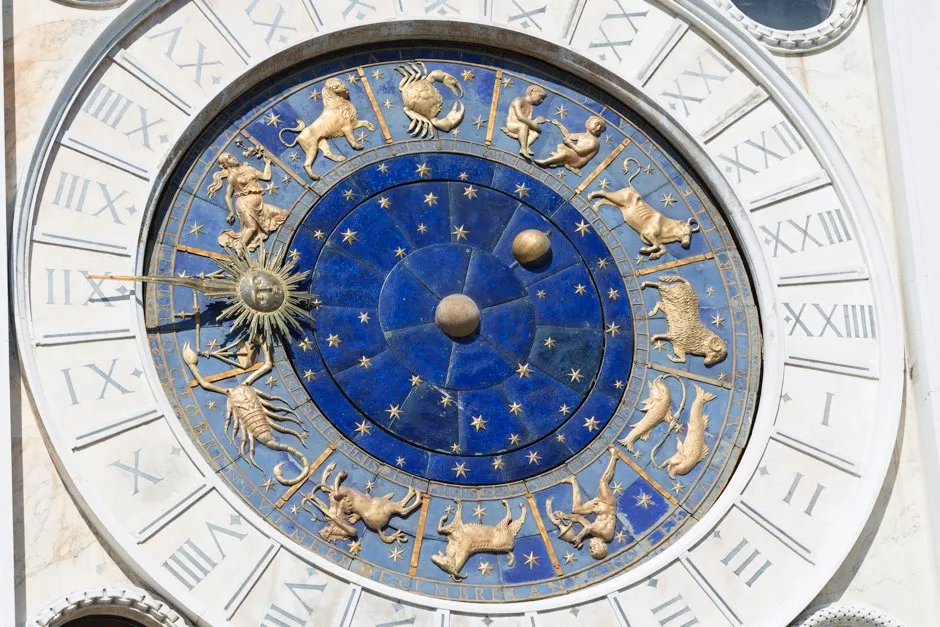From politics to the weather to economics, you don't need an especially long memory to appreciate that modern-day predictive algorithms have chalked-up some pretty spectacular failures in recent years.
Through my work as a data scientist, I frequently encounter all manner of dubious forecasting models, most of which, nevertheless, rely upon exceptionally sophisticated mathematics. How many of these so-called scientific models, I wondered, could even beat the predictions of superstitious astrology? It's a question I became very curious to answer. But what, actually, is astrology?
In my line of work, bad data science is often brushed off as "basically astrology." It's a humorously cutting insult, but one that I believe expresses an important insight: astrology truly is a type of data science, one that deserves credit as history's first attempt to understand the world, and ourselves, using numerical algorithms.
In my new book, A Scheme of Heaven: Astrology and the Birth of Science, I set out to recast astrology as the ancient world's most ambitious applied mathematics problem, a grand data-analysis enterprise sustained for centuries by some of history’s most brilliant minds from Ptolemy to al-Kindi to Kepler.
Just consider that for much of the last two thousand years, the word “mathematician” (mathematicus) simply meant an astrologer – there was no distinction.
Read more about science history:
- The Bone Wars: how a bitter rivalry drove progress in palaeontology
- Peter van de Kamp: the astronomer who was wrong in all the right ways
Most of all, I wanted answers to some seemingly basic, yet stubbornly elusive questions about astrology. For instance: can people be meaningfully grouped according to their zodiac sign? How many unique astrological configurations are there? Were the financial algorithms of medieval astrology any good?
For a craft that's spanned continents and centuries, I knew I couldn't treat astrology as a fixed and static thing. Instead, I've written A Scheme of Heaven as a history, one that focuses on key moments in time and place that were instrumental to astrology's development, and the key astrologers from those eras who grappled with the fundamental questions of their art.
Yet, wherever possible, I’ve also framed the book’s topics in such a way that modern statistical methods and data can offer some much needed clarity. The contentious issue of believing, or not believing, in astrology is not my concern. (I personally do not believe in astrology.) Rather, I set out to determine what could be known about astrology. And, as it seems to me, many of astrology’s most provocative questions are properly data science questions.

So, after having emerged from my astrological deep-dive, can I report that any of astrology's claims stand up to scientific scrutiny?
Particularly surprising, at least to me, was realising that certain professions do indeed exhibit statistically significant correlations with the zodiac. This observation is especially pronounced in sports. In professional hockey, for instance, Capricorns and Aquarians disproportionately outnumber Sagittarians and Scorpios.
To be sure, this phenomenon, which has been documented for several decades, has nothing to do with the zodiac and everything to do with the strict calendar cutoffs of competitive youth leagues. Nevertheless, results like this are a good reminder that life on Earth is very much influenced by the cycles of our nearest stellar neighbour, the Sun.
Read more about belief:
- What could explain the Star of Bethlehem?
- Fact and Faith: why science and spirituality are not incompatible
Beyond astrology's specific claims, however, I argue that astrology gives expression to particular viewpoints about the cosmos that, in a curious way, are once again having their day in the Sun. First is the intuition that our lives are influenced by events in the broader universe.
The mid-twentieth Century discovery of the interplay between galactic cosmic rays and the Sun's eleven-year solar cycle have vindicated this notion quite emphatically. Even now, scientists are just beginning to appreciate the implications of this for the Earth's climate and, indeed, the biological evolution of life on our planet.
More significantly, astrology has always embodied an adventurous optimism regarding what sorts of questions can be meaningfully addressed with mathematics.
Today, we’ve once again entered an era where mathematically complex, data-driven algorithms are promising insights into our personalities and preferences that previously only astrologers would have dared to divine. Might our new breed of artificial intelligence-based algorithms finally succeed where astrology has failed? How prepared are we to live in a world in which each of us has become dispiritingly predictable?
Astrologers were the quants and data scientists of their day, and those of us who are enthusiastic about the promise of numerical data to unlock the secrets of ourselves and our world would do well simply to acknowledge that others have come this way before.
Whether you’re intrigued by astrology, repelled by it, or anywhere in between, I contend that astrology remains tremendously relevant as a challenge to what we think we know and why we think we know it.Regardless of whether astrology has distilled any truth or not, what seems clear to me is that it has bottled up a certain type of magic, one that has proven time and again its ability to get us to stop and think about our connections to the wider universe.
Against a backdrop of indifference, this is some magic indeed. In A Scheme of Heaven, I interpret astrology’s bold claims as an invitation to explore some of the deepest mysteries of who we are and where we are. And now, finally, I’m excited to extend this invitation to you.
A Scheme of Heaven: Astrology and the Birth of Science by Alexander Boxer is out now (£25, Profile Books).
